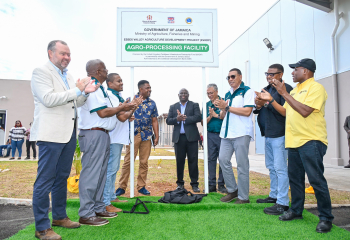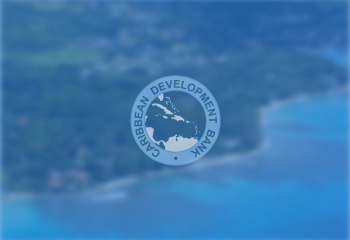Imagine you’ve got a great five-room apartment hotel near the coast. It’s your only source of income and you’ve invested more time and money in it over the years than you care to recall. It offers a fabulous, authentic experience for sun-seeking guests, who just want to keep returning.
But there is so much more that could be done with the property, including streamlining the check-in and check-out processes, upgrading the signage to make them more guest-friendly, and most importantly, ensuring that your team members are trained and ready to offer, high quality service that is standards-driven.
This is what the Caribbean Tourism Organisation’s (CTO) Hospitality Assured Caribbean Certification Programme (HA Certification) has helped to provide several tourism-related businesses across the region. The long-standing initiative is also among the many recipients of funding through the Caribbean Development Bank’s (CDB) Micro Small and Medium-Sized Enterprises (MSME) Unit.
Sharon Banfield-Bovell, Director of Resource Mobilisation and Development at the Barbados-based CTO, is particularly proud of the HA Certification initiative which started in 2007 and received US$223,300 in CDB funding support in June 2017.
“Hospitality Assured is a standard that relates to service excellence, similar in concept to Green Globe. It is a standard that was created by the globally-recognised Institute of Hospitality in the United Kingdom and is meant to provide that minimum level at which a tourism and hospitality business can certify and show that the company is meeting the required standards,” Banfield-Bovell explained.
“The programme that the CTO adopted and rolled out was for all businesses across the board – from food and beverage, to accommodation, to attractions and activities and transportation,” the CTO executive noted.
While the HA Certification targets various sized businesses in the sector, CDB, through its MSME Unit, sought to target its assistance to smaller enterprises that are in greatest need of support to meet the required standards, but whose potential for growth is enormous.
As Banfield-Bovell explained, the CDB funding proved invaluable to small operators who, though eager to participate, had been challenged to fund the business advisory and assessment costs required. These are estimated at between US$3,700 to over US$5,000 depending on the size of the enterprise.
The HA Certification is a highly sought-after, rigorous process that measures enterprises against 44 criteria in a nine-step course. The CDB funding was used to engage business advisors who helped the recipient entities to meet the nine-step process, train business advisors and assessors across the region. The assessors are tasked with evaluating whether the business has met the standards it has identified in its submission report to the CTO. If successful, the entity is then awarded the Hospitality Assured certification.
As Banfield-Bovell pointed out: “The bigger establishments already had certain advantages because they were part of chains or bigger hotels....They just wanted to have the recognition of Hospitality Assured. Whereas, when we engaged our Government partners in the various countries, they explained their hospitality sectors comprised many Mom and Pop-type establishments offering accommodation, restaurants, attractions and activities, and they were the ones that needed the most help.”
CDB’s grant funding of CTO’s HA Certification was intended to support businesses in ten of CDB’s borrowing member countries that are also CTO members.
“We had a total of 23 businesses coming into the programme. To date, 13 completed the programme and attained Hospitality Assured Certification,” she detailed.
The target countries included Anguilla, Belize, British Virgin Islands (BVI), Guyana, Jamaica, Montserrat, Saint Lucia, St Kitts and Nevis, St Vincent and the Grenadines, and Turks & Caicos.


